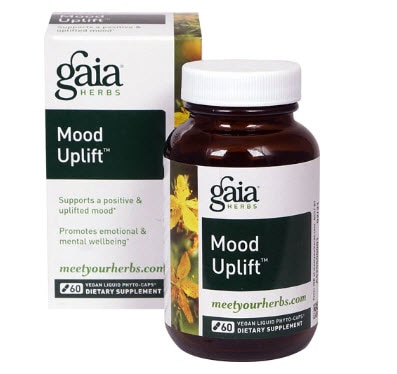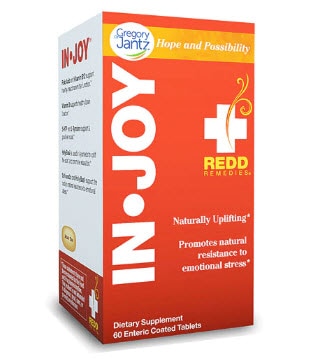Does it every feel like life is simply passing you by? Perhaps you’re running on auto-pilot, rushing from place-to-place, doing a million things a minute and hardly giving yourself a chance to stop and smell the roses? In this fast-paced life, it’s easy to get caught up in the chaos. For many, this lifestyle can trigger and worsen daily stress and symptoms of mental illness. So, what’s the solution? For starters, consider incorporating these mindfulness techniques into your everyday routine.
What is mindfulness?
Mindfulness is a philosophy and meditation practice. Essentially, mindfulness is about being consciously aware of and tuned-in to the present moment. Based on Buddhist principles, mindfulness also teaches us to cultivate an attitude of nonjudgmental acceptance. This means that we’re encouraged to simply notice our moment-to-moment experiences without passing judgement on what’s happening. If this all sounds a bit abstract, don’t worry: the steps below will serve as a straightforward and practical introduction to mindfulness.
1. Observe your breath
Start by turning your attention to the inhalation – are you breathing in through your nose, or your mouth? Are there any specific sensations that you notice as you inhale? Perhaps a feeling of coolness or heat in your airway? Notice how your chest expands with air and contracts as you exhale. Simply observe the rhythm and pace of your breath.
Repeat this process as many times as you wish. Remember, you don’t need to be breathing in a specific way or changing the way that you’re breathing: the task is simply to notice what’s happening in your body as you inhale and exhale. This is a simple and powerful mindfulness technique that you can use to lower your stress levels wherever you are.
2. Notice your thoughts
To perform this technique, turn your attention inward and notice the thoughts – any ideas, words or images – that pass through your mind. It's easy to get caught up and entangled within these thoughts. So try this: Imagine that you’re lying on your back looking at the sky. Your thoughts are like clouds that drift in and out of your field of vision. Simply allow them to come and go without trying to change that process and without getting carried away by them.
Perhaps you’re noticing that some of your thoughts are negative, judgmental or self-critical? Psychologists refer to these as ‘negative automatic thoughts’ – these are thinking patterns that underlie much of our stress, emotional tension and mental illness. Interestingly, research has shown that mindfulness helps to reduce the occurrence of these negative automatic thoughts. So, start observing your own thoughts in order to achieve a healthier state of mind. If your thoughts to happen to be negative or stress-inducing, that’s absolutely OK: try to accept them as they are rather than focusing on how they should be.
3. Do a body scan
This technique involves using your mind to “scan” your body, usually from top to bottom. Start at the top of your head and progress downward, allowing your attention to rest on each part of your body until you reach your toes. Your goal is to notice any sensations that are present, good or bad. Do you notice a sense of calm, comfort and safety? Or are you noticing discomfort in the form of pain or tension? Perhaps there’s a tightness in your belly, or an itch or an ache on your leg? Don’t try to change these experiences – simply notice and accept them as they are.
4. Eat mindfully
Have you every noticed that when you eat in front of the TV, it’s extremely easy to wolf down huge amounts of unhealthy food without even realizing what you’re doing? By contrast, mindful eating is about fully immersing yourself in the experience of eating. How can you go about doing this?
Before taking a bite, notice what your food looks like. Observe the shape, colors and textures. Similarly, notice what’s happening in your body as you look at the meal you’re about to have: are you starting to salivate? Is there a rumbling of hunger in your belly? Are you experiencing an urge to take a bite?
Next, notice the smells arising from your food and as you take a bite. Pay attention to the tastes and textures that you encounter. If you like, you can try to identify and differentiate the different ingredients that make up your meal.
What does the science say about mindfulness?
‘Mindfulness’ has become something of a buzzword lately, especially within health and wellness circles. Are there any proven benefits of mindfulness to note, or is mindfulness just a fad? Much promising research is emerging to suggest that mindfulness is in fact an effective way of improving your health, well-being and overall quality of life.
Mindfulness has also been incorporated into existing forms of psychotherapy. For example, Mindfulness-Based Cognitive Therapy (MBCT) and Mindfulness-Based Stress Reduction are two formal therapy techniques that have been wholeheartedly embraced by clinical psychologists and other healthcare practitioners around the world.
Does the hype about mindfulness outweigh the scientific data attesting to its efficacy? It’s hard to say for sure until further research is done. However, it does seem that mindfulness techniques can be used to promote health and well-being, especially when it comes to symptoms of anxiety, depression, insomnia and general stress.
Live in the present moment: don’t let life pass you by!
Mindfulness can be challenging to learn and practice. However, the more you do it, the easier it becomes to step out of the “doing mode” and to focus more on the simple act of being. Research has even demonstrated that practicing Mindfulness meditation frequently can change the form and functioning of your brain for the better. So, whether you’re incorporating mindfulness into every aspect of your life or simply eating the occasional mindful meal, these basic skills can be used to improve your physical health and mental well-being.
(Note: If you have been diagnosed with a mental health disorder such as depression or anxiety, it’s recommended that you use these techniques in addition to – not instead of – in-person psychotherapy or online counseling. If you’re struggling with everyday stress, the above strategies may help you to cope and to improve your quality of life.)
Some products you might be interested in:









